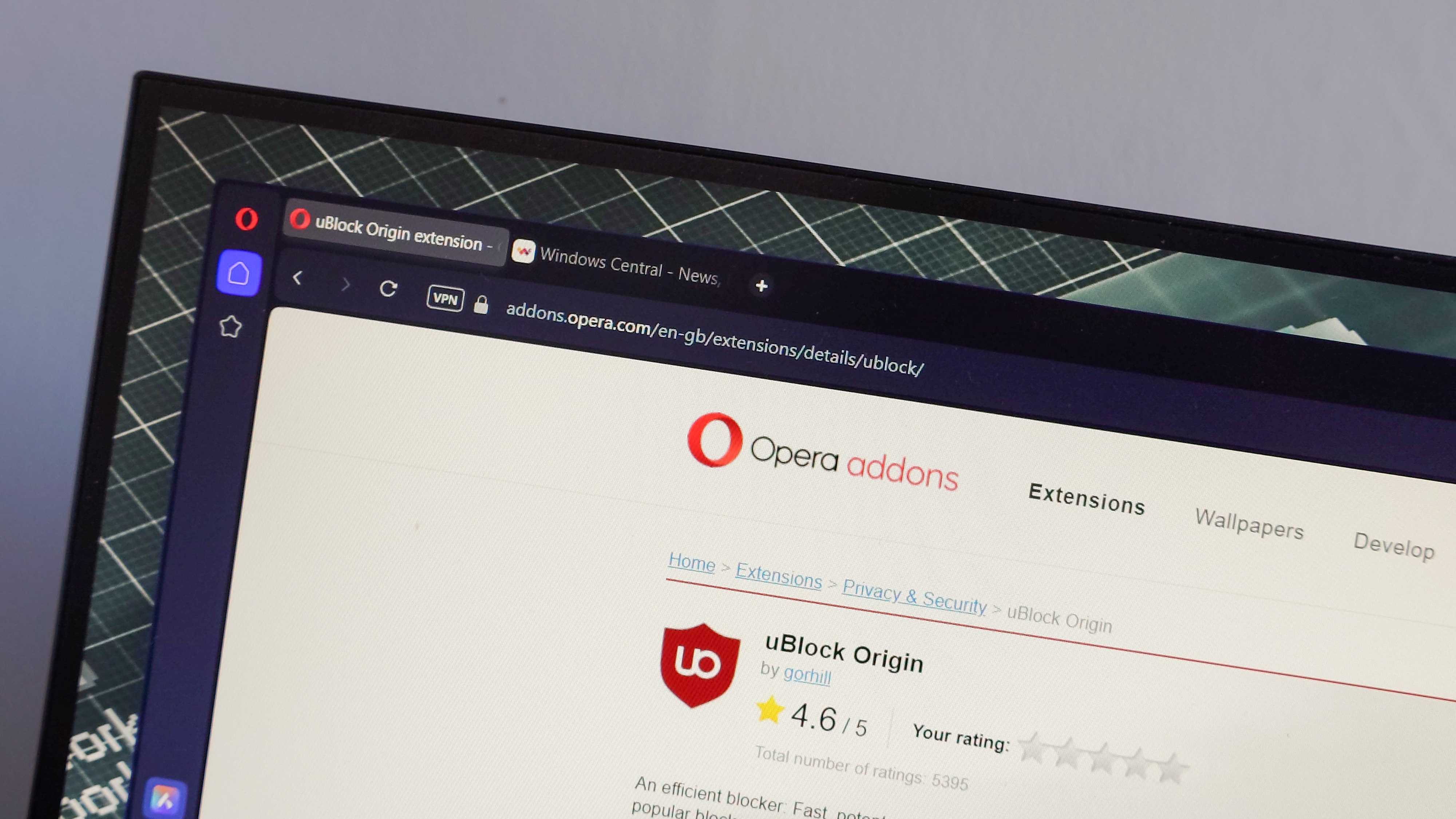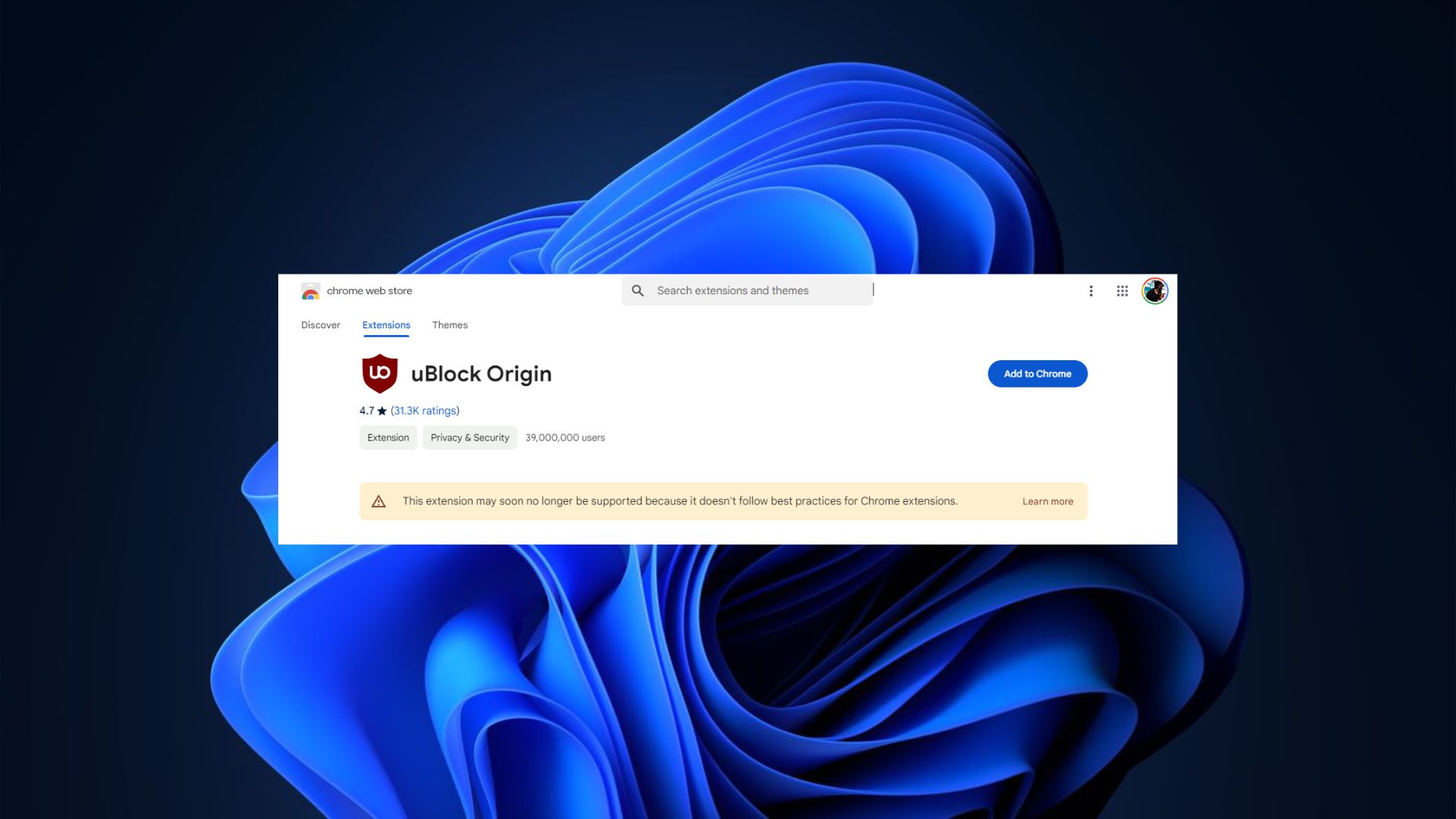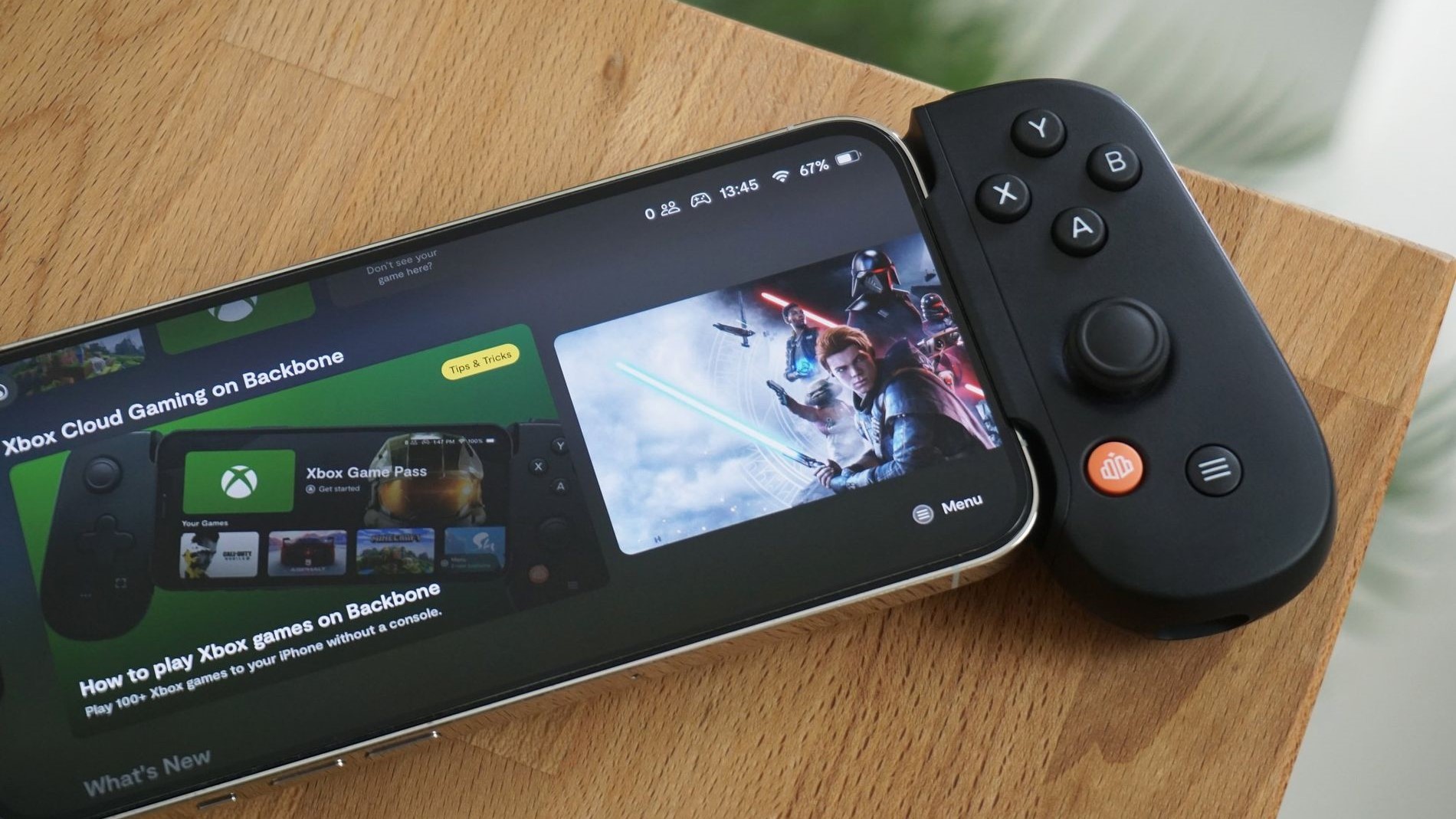Opera will 'independently' continue supporting uBlock Origin by modifying Chromium's codebase — instead of forcing over 30 million users to switch to "the more bare-bones version" like Google Chrome
Opera could dent Google Chrome's massive user base with its extended support of uBlock Origin.

What you need to know
- Google announced the transition from the Manifest V2 framework to the Manifest V3 framework for privacy and security reasons, cutting support for Manifest V2-based extensions like uBlock Origin, leaving over 30 million users susceptible to intrusive ads.
- While there's a Lite version of the ad blocker, it misses crucial features that make the experience less effective.
- Opera recently announced that it'll continue supporting uBlock Origin running the Manifest V2 framework alongside its native ad blocker by making special modifications to Chromium's codebase.
Google's decision to transition from the Manifest V2 framework to the Manifest V3 framework on its Chrome browser has potentially left over 30 million users susceptible to intrusive ads, since the Chromium browser no longer supports extensions like uBlock Origin.
Google confirmed to Windows Central that "over 93% of actively maintained extensions in the Chrome Web Store are running Manifest V3, and the top content filtering extensions all have Manifest V3 versions available - with options for users of AdBlock, Adblock Plus, uBlock Origin and AdGuard."
As you may know, the company unveiled a new version of uBlock Origin called uBlock Origin Lite, which meets Google's stringent Manifest V3 framework threshold. While uBlock Origin Lite supports core ad-blocking features like its predecessor, it falls short in key departments, as it doesn't support dynamic filters for blocking, scriptlet injection and more.
The news has been received with reservations, prompting some to claim they could transition to other browsers supporting uBlock Origin, including Brave. Brave touts its built-in ad and tracker blocker. It also plans to continue supporting uBlock Origin, potentially attracting Chrome's vast user base to its services.
Opera will continue supporting uBlock Origin
According to the folks over at Neowin, Opera is seemingly joining the fray, and just like Brave, it'll continue supporting uBlock Origin running the Manifest V2 framework. In a blog post dubbed "Opera will always help you block ads natively," the company indicated:
"We plan to continue supporting Manifest V2 extensions in Opera independently of what will happen to other browsers. This means that users of Opera’s browsers should expect to continue to use non-graded versions of their favorite ad blocker extensions.
All the latest news, reviews, and guides for Windows and Xbox diehards.
Opera will, of course, also continue to offer robust built-in ad blocking regardless of what happens to ad blocker extensions. We have done so since 2016, when we were the first browser to offer this functionality."
Users majorly impacted by Google's decision to cut support for uBlock Origin due to the transition to the Manifest V3 framework for better security and privacy could potentially transition to Brave or Opera for continued support, ultimately denting Google Chrome's broad user base.
However, Opera admits it's built on the same open-source code as Google Chrome. As such, it'll be impacted by the Manifest V3 framework changes in Chromium. Consequently, it intends to make modifications on top of the codebase for continued uBlock Origin support.
According to Opera:
"While we want to be able to offer the best possible support, our focus will be on maintaining a safe and secure experience for users, both within our Add-ons Store and with extensions that come from outside sources. In the coming days and weeks, we will be reaching out to selected extension developers to determine the best and safest way forward."
It'll be interesting to see how Google's decision to deprecate the Manifest V2 framework for V3 will impact Google Chrome's dominant market share compared to other browsers, especially with Brave and Opera taking a different approach to the Manifest V2 framework deprecation.
🎃The best early Black Friday deals🦃
- 💻Lenovo Yoga Slim 7x (X Elite) | $999.99 at Best Buy (Save $200!)
- 📺LG Curved OLED 32 (QHD, 240Hz) | $889.99 at Amazon (Save $610!)
- 🎮Amazon Fire TV Xbox Game Pass bundle | $74.99 at Amazon (Save $62!)
- 💻Alienware m16 R2 (RTX 4060) | $1,399.99 at Dell (Save $300!)
- 📺HP Omen 27qs (QHD, 240Hz) | $299.99 at Best Buy (Save $130!)
- 🔊2.1ch Soundbar for TVs & Monitors | $44.99 at Walmart (Save $55!)
- 💻HP OMEN Transcend 14 (RTX 4050) | $1,099.99 at HP (Save $500!)
- 🎧Sennheiser Momentum 4 ANC | $274.95 at Amazon (Save $125!)
- 📺LG C4 OLED 4K TV (42-inches) | $999.99 at Best Buy (Save $400!)

Kevin Okemwa is a seasoned tech journalist based in Nairobi, Kenya with lots of experience covering the latest trends and developments in the industry at Windows Central. With a passion for innovation and a keen eye for detail, he has written for leading publications such as OnMSFT, MakeUseOf, and Windows Report, providing insightful analysis and breaking news on everything revolving around the Microsoft ecosystem. While AFK and not busy following the ever-emerging trends in tech, you can find him exploring the world or listening to music.

